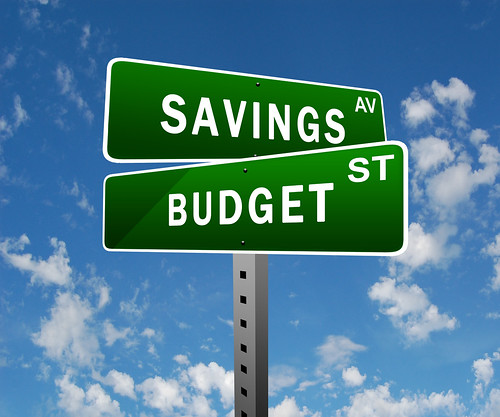Across the United States today, more than nine percent of adults are unemployed. Without a job, you might be receiving benefits from the government or living off of savings. Either way, you will be on a limited budget. Even small expenses can add up, taking away from your security and your finances. If you are unemployed, here are a few basic budgeting tips to help stretch every dollar.
Budgeting Tip #1: Get Rid of Unnecessary Expenses

Budgeting Tip #2: Create a Cash Budget and Stick To It
Once you know how much you can spend each month, create a budget starting with the necessary items. Then, set aside cash for things like food, gas or bills. Try to only spend this cash each week and avoid using credit cards or writing checks. This will force you to stick to your budget, as once the cash runs out you simply have to stop spending.
Budgeting Tip #3: Reduce Home and Auto Insurance Payments
When you look at the list of items that are necessary in the budget, insurance is almost definitely going to be important. However, you may be able to reduce what you spend each month. Consider downgrading an expensive policy, asking for a discount, comparison shopping for a better rate or even increasing your deductible for the time being.
Budgeting Tip #4: Get Rid of Any Unhealthy Habits
Some of the most unhealthy habits are also the most expensive. Smoking cigarettes, drinking alcohol or dining on fast food on a regular basis can add up to be a significant amount of your budget. Try to eliminate these bad habits in order to save money. Financial expert Jen Randall reminds those on a limited budget to, “Drink water instead of soda or alcohol and quit smoking. Unhealthy habits are expensive and unnecessary.”
Budgeting Tip #5: Utilize Free or Almost Free Resources
There are a lot of things that can be free if you know where to look. If you live close to a local library, consider getting rid of your Internet connection and instead using the free computers there. Libraries are also a great resource for books, movies and even video games. Check online to see where free local exhibits or concerts are being held locally for affordable entertainment.
Budgeting Tip #6: Downgrade Wherever Possible
Things like your rent, mortgage, car payments and cellphone bill may seem like necessary expenses, but they don’t have to be. Consider relocating to a smaller place to save money, trading in your car for something less expensive or even canceling your phone plan for a pay as you go option.
Saying that being unemployed is tough is an understatement. With the right help and advice, however, living on a tight budget can be made easier.
Valerie Porter writes for askforinsurance.com where you can learn how much can you earn while on social security disability
